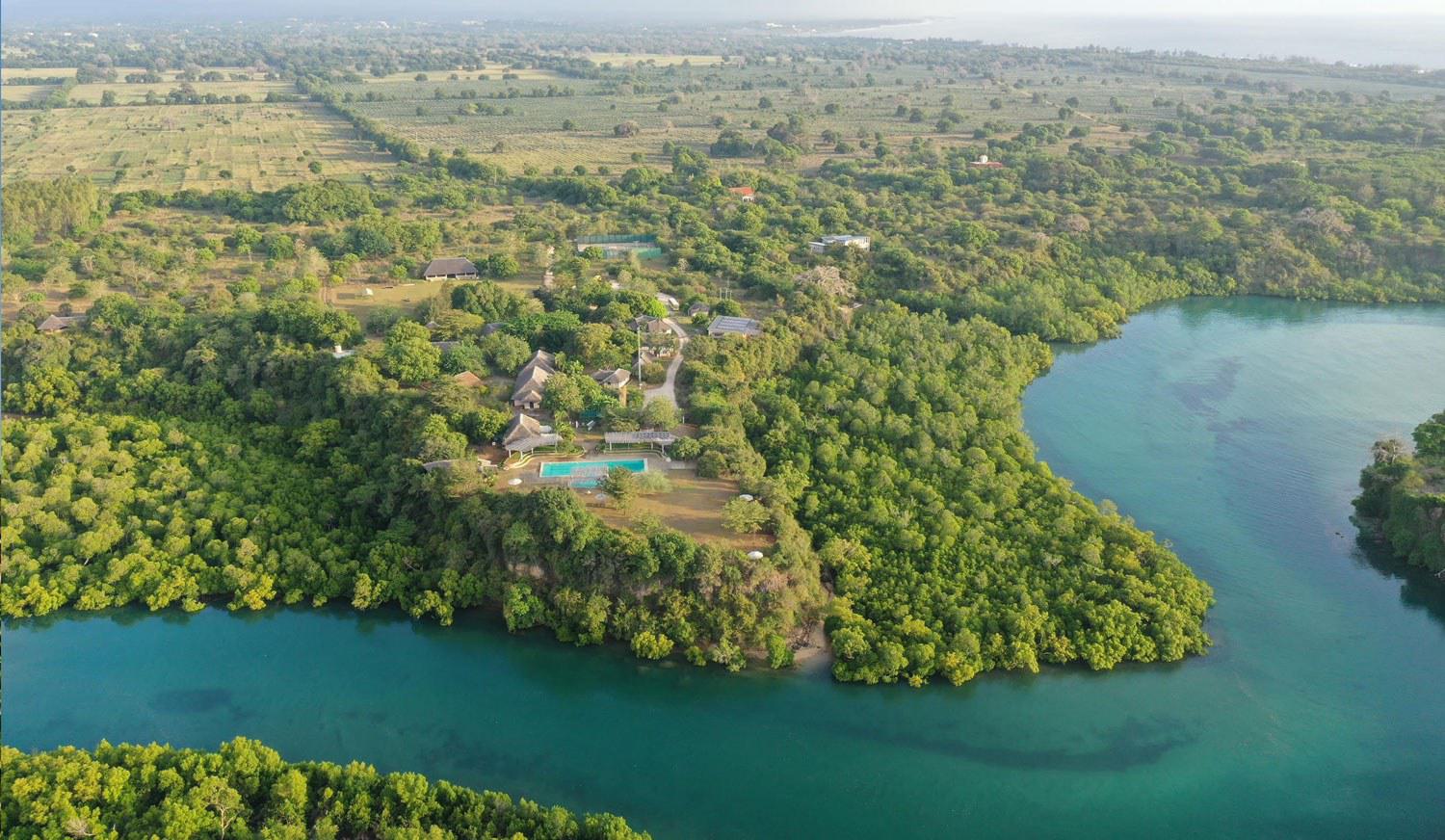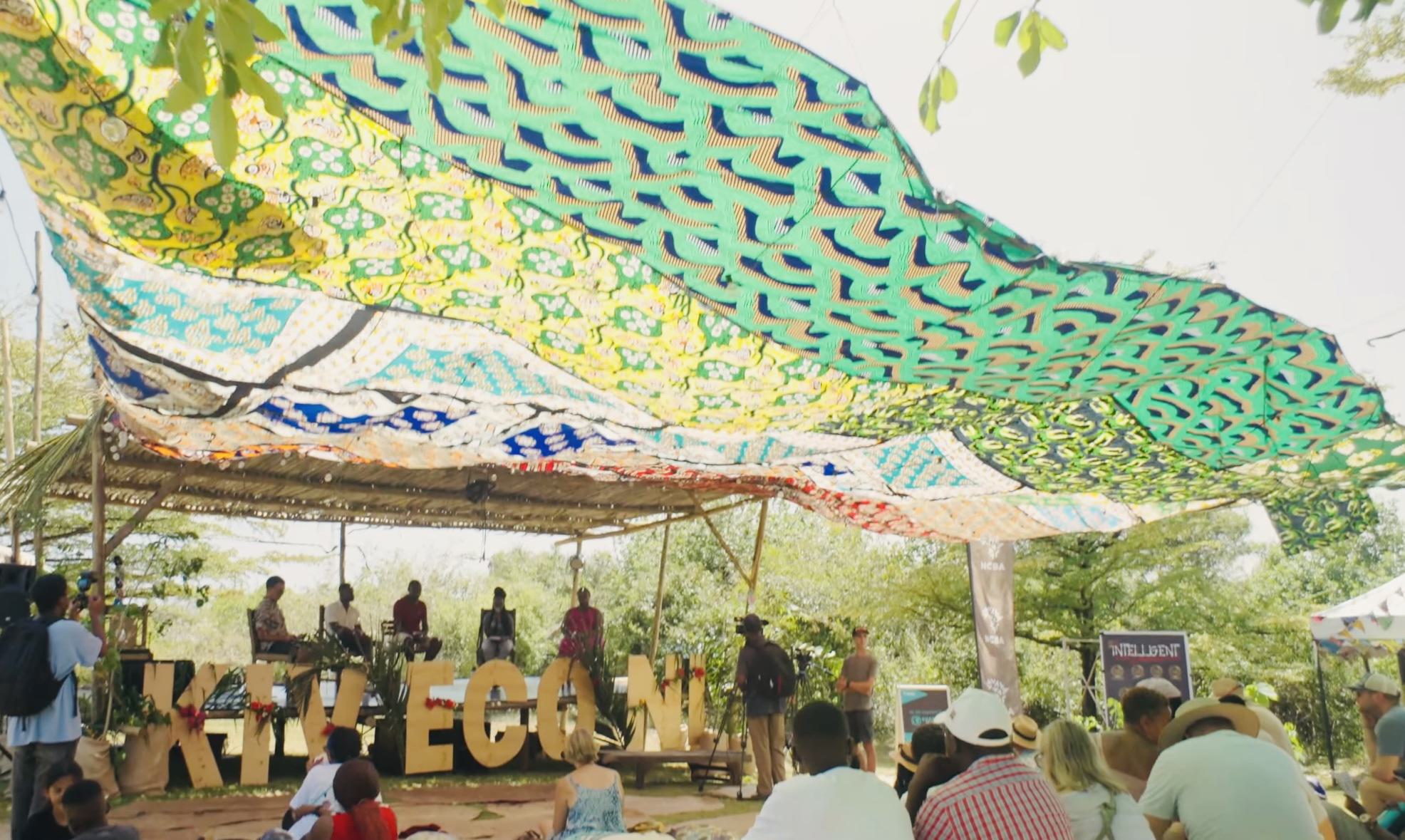
Sheba Hope Ambassador, Ledama Masidza, shares his stories of HOPE
As an advocate for our oceans and coastal communities, Sheba Hope Ambassador, Ledama Masidza, shares his stories of hope in his home of Kilifi, Kenya.
After two high-tempo weeks at COP29, immersed in global discussions aimed at tackling the colossal challenge of climate change, my journey brought me back home to Kilifi—Kenya’s dynamic and nature-blessed coastline. As I stepped into the humid embrace of Kilifi, my body worked to re-acclimatise to the heat and moisture after the crisp, cold air of Baku. But beyond the physical adjustment, I realised my mind, too, was shifting—recalibrating its perspective on the role of local, community-led solutions in addressing challenges of global scale.
This reflection came sharply into focus as I entered the Kivukoni Eco-Festival, an event buzzing with energy and purpose. Under the shade of makuti-thatched wooden stages and vibrant kanga cloth, local initiatives and sustainable businesses were proudly on display. Each step brought encounters with smiling neighbours, old friends, students I had once taught conservation classes to, colleagues from partner community organisations, and even familiar faces from my favourite local restaurants.

In this lively gathering, a sense of hope washed over me. It was clear that every segment of my community had shown up—not just in attendance but in action. Each initiative represented a cog in the wheel of our collective dream for a sustainable future. Through their spaces and work, they demonstrated practical examples of how this dream is being brought to life. Surely, this has to mean something in the face of our grand fight against climate change.
With this thought swirling in my mind, I took my place as a panellist in the "Save Our Seas" session. Fortunately, the panel was carefully curated to grapple with the complexity of such a question. Sharing the stage with me were Esther Maina, who brought a powerful dual perspective on how youth can influence ocean policy at both local and global levels; Lilian Mulupi, whose insights from IFAW’s work grounded the discussion in the realities of collaboration between global organisations and local stakeholders; Justus Ndoro, chairman of the Takaungu BMU, whose voice represented the lived experiences of local fishing communities facing the vulnerabilities of a strained fishery; and David Obura, a globally respected coral researcher and the Founding Director of CORDIO East Africa, whose deep understanding of coral reef sustainability set the tone for our dialogue as the session’s moderator.
Together, we delved into the nuanced dynamics, challenges, and opportunities that define our collective effort to save our seas. As insights flowed, a powerful realisation emerged: we were building a chain, linking the local to the global, and the global to the local. Coastal fishing communities, whose livelihoods are deeply intertwined with the ocean’s health, bear the brunt of global pressures. The influence of international policies and industrial practices often ripples through to local realities, shaping the vulnerabilities they face. And yet, while global dialogues tend to focus on high-level solutions, their success is invariably dependent on the involvement and empowerment of local actors who are on the frontlines of implementation.

This session reaffirmed my belief in the importance of supporting local solutions. Local actors and stakeholders must be equipped with the resources and recognition they need to succeed, as they are the ones taking immediate action to protect our planet. Dialogue between local stakeholders and global policymakers must be nurtured to ensure that proposed solutions reflect the lived realities of those implementing them on the ground. Global initiatives, in turn, must take cues from local solutions, ensuring their structures align seamlessly with the needs of those acting at the community level.
Reflecting on this, I couldn’t help but think about the Sheba Hope Grows restoration programme and how it embodies these ideals. During my visit to Lamu, I witnessed the coral restoration work The Ocean Trust is doing with their community in collaboration with the MARS Sheba Hope Grows initiative. This programme is a shining example of how local-community engagement is central to long-term restoration success. By empowering local communities with the resources to restore coral reefs—while addressing their cultural and economic needs.

After all, we wouldn’t expect a doctor to save a life without the tools to do so. Similarly, we cannot expect local communities to combat the effects of climate change without the support they need. As I left the Kivukoni Eco-Festival, I felt a renewed sense of purpose in the role I play as Sheba Hope Grows Ambassador, a Connect Lead within the African Food Fellowship and a Frontline Leader for the Global Alliance for the Future of Food. The connection between local action and global ambition is not a theoretical one—it is a practical, tangible link. Events like the Kilifi Eco-Festival remind us that the solutions we seek globally are often already being crafted locally. Our job is to ensure that these efforts are nurtured, scaled, and celebrated.
To lose the ocean, is to lose the very essence of life itself
Ledama Masidza

